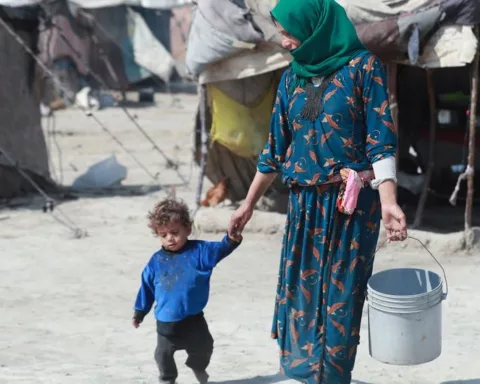A year after the coronavirus outbreak, the social and economic fallout could have a long-term impact on gender equality, threatening the progress made and potentially pushing an additional 47 million women and girls below the poverty line worldwide.
Last year marked the 25th anniversary of the adoption of the UN’s Beijing Declaration aimed at the advancement of women around the globe, but there is still a long way to go before gender equality is achieved. According to the European Institute for Gender Equality’s Index 2020 (based on data from 2018), the EU scores 67.9% on gender equality and is at least 60 years away from reaching complete equality at the current pace.
More women on the Covid-19 frontline
Of the 49 million care workers in the EU, who have been most exposed to the virus, around 76% are women.
The biggest EU imbalance was in Latvia – with women making up 88% of the healthcare work force, compared to 53% in Malta).
In addition, women are over-represented in essential services ranging from sales to childcare places, which remained open during the pandemic. In the EU, women account for 82% of all cashiers and represent 95% of workers in domestic cleaning and home help fields.
Increased job insecurity for women
About 84% of the working women aged 15-64 are employed in services, including in the main Covid-hit sectors that are facing job losses. Quarantine has also affected sectors of the economy where traditionally more women have been employed, including nursery, secretarial and domestic work.
More than 30% of women in the EU work part-time and occupy a large share of jobs in the informal economy, which tend to have fewer labour rights as well as less health protection and other fundamental benefits. They are also much more likely to take time off to care for children and relatives and during lockdowns often had to combine teleworking and child care.

Escalation of violence against women
About 50 women lose their lives to domestic violence every week in the EU and this has increased during lockdown. The restrictions have also made it harder for victims to get help.
At the same time, greater internet use during the pandemic has increased online gender-based violence and the online sexual abuse of children and especially girls.
Some EU countries, set additional measures to counter gender-based violence during the pandemic.
At the Parliament
This year the European Parliament will mark International Women’s Day during its plenary session on 8 March, while the women’s rights committee marks the day with its We are strong: Women leading the fight against Covid-19 event on 4 March.







